BABU MUHAMMAD
The Reputed Travel Guide in the HKK Region
Mumtaz Hussain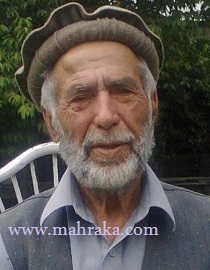
"Babu Muhammad" is a familiar name with tourists who have ever visited the Hindu Kush Karakoram (KHH) region of northern Pakistan. Among the local people he is better known by his nick name "Mroyo Babu". He is among the earliest tour guides in Chitral. Before him only Abdul Samad of Drosh and Maulai Jan of Terich had worked in the tourism field. Services of Babu Muhammad were sought by tourists and expedition teams as a basic necessity in Chitral. When the tourist season was off, he was seen sitting in his road side tea stall at Mroi, catering to local travelers plying between upper and lower Chitral. Since tourism in Chitral is now a story of the past, nobody aspires for a career as a tourist guide, but Babu, an old man of over 70 years, is still in the business. He manages a hotel in Chitral, which is visited by foreigners only.
Sitting under the shade of a big chinar tree in the lawn of his hotel, Babu Muhammad told his story:
In 1959, I was in the high school when my elder brother died in an accident. Riding across the tumultuous Mroi Stream, his horse fell into a deep ravine, and he died on the spot. I, being the only other son of my heart-broken parents, had to give up my education and look after them.
During the summer months of that year, I was at home, and a group of foreigners camped in our garden. As usual per local tradition I went over to them to show a little hospitality. They noticed that I could speak some English, and they offered me to accompany them to Terich as interpreter, where Maulai Jan, their guide was to join them. I went with them to Drasan and crossing Zani Aan (3886m) came to Zondrangram, where Maulai Jan was waiting. This was the Oxford Expedition to Mt. Saraghrar (7350 m). They attempted the still unconquered mountain from the Rosh Gol side. The expedition was abandoned after the accidental death of Peter Nelson, a team member. The bereaved team camped at my garden again on their return journey and gave me a certificate. This short trip introduced me to the world of tourism. From then on, I was engaged in expeditions as interpreter, and when I got enough knowledge of the mountains, I became a regular tourist guide.
1n 1964, I was engaged by an Austrian team to the Udren Valley in Terich. This expedition climbed a number of small peaks apart from the big ones, like Udren Zom, Kohe Shakhawar and Nadir Shah. This was the first time, I went to a considerable height in the mountains, and it was a great experience for me. The next year I was again with an Austrian team, led by Dr. Gruber, on an expedition to Buni Zom (6,842 m). In 1966 I went with the three members Austrian Team to Ujnu Gol, led by Hanns Schell. With him were his wife and another man. They climbed the peak named Akherchio. These were very hardy people, moving fast and with little equipment.
In 1967 Dr. Gruber came on an exploratory expedition. They were not going to climb any particular peak, but were carrying out survey of peaks for the future climbers. I went with them to Torkhow where they climbed some peaks in Ujnu and Rech. They crossed the Shah Jinali pass and descended into the Yarkhun Valley. The team climbed a number of peaks in Boroghil and made surveys. Their original plan was to cross over to Gilgit, either via Darkhot or Thui passes. But we received an order from the district authorities to return to Chitral. At Mastuj, the late Tehsildar Faramurz Khan told them that they were not allowed to go to Gilgit. He proposed that they should either go to Swat by Bashqar Gol or down to Chitral and by Lowari pass (3,200m) to Dir. Dr. Gruber opted for the second choice, saying that he had already come through the former route in 1965. At Barenis village, we were able to get two seats on a jeep. I was told to accompany Mrs. Gruber on the jeep ride, who was very tired by then. While crossing Dalum Gol, the jeep fell to the deep ravine and some people were killed. Mrs. Gruber received severe injuries and I was left with a broken leg. We were taken to Chitral and then to Peshawar in a wagon. Dr. Gruber accompanied his wife who was flown to Austria via Karachi. While he left his other fellow behind to look after me. I received treatment in the Peshawar Mission Hospital and returned home after a couple of months. This accident left me crippled for quite sometimes. In 1968 another Austrian expedition came to Chitral for Koyo Zom in Yarkhun. Dr. Stamm was the expedition leader. As I was not fully fit to walk, they hired a horse for me. I stayed at Pech Uch village, while they ascended the peak. In 1969 Dr. Gruber came to Chitral and said that he was not on any particular expedition, but had only come to see me. We traveled up to the Terichmir Base Camp in the Oweer valley and then crossed the mountain to Lot Kuh Valley.
In 1971, I went on a trip to Gilgit and Hunza with a touring group of ARAMCO (Arab-American Oil Company), Saudi Arabia. The trip was organized by a Rawalpindi based tour operator, Sitara Travels. At the end of the trip, Sitara Travels offered me employment which I accepted, and worked with them till 1989. In that year the organization “Hindukush Tails” was founded, and I was employed in it. But now the golden days of tourism in Chitral were over. It was not a fine period for my professional life but I nevertheless, had a chance to visit UK during this period. A British company Karakorum Experience worked in collaboration with the Hindukush trails. In 1993 the company arranged a tour for me to their country. I toured England, Scotland, and Iceland during the trip. In 1998 Dr. Gruber arranged another for me to Europe another visit to Europe. This time I saw the whole of Austria and Germany.
During the long fifty years of my professional life, I have worked with people from every corner of the world. People of every country have their peculiarities. Americans mostly behave like a man with a new found fortune. Japanese and other Asian are simple people, and mind their own business. Italians are fine people but a little bit quarrelsome. British expect respect from you more than anything else. But the real gentlemen I have seen in Germans (of course including Austrians).
Yes I am satisfied with my profession. I have a good time up in the mountains. Saw wonderful places and people. I have been honored by naming the most important mountaineering base camp in Trichmir after my name; the “Babu Camp”. I have seen tourism industry in Chitral rise and fall before my eyes. I would like to see it prosper again. Chitral has got great potential for tourism. It can change the economy of the region in a very short time.
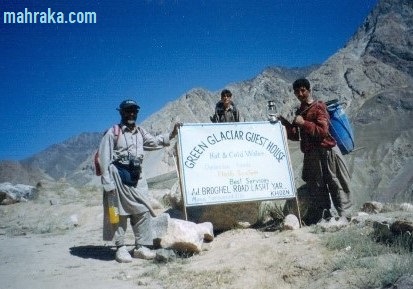
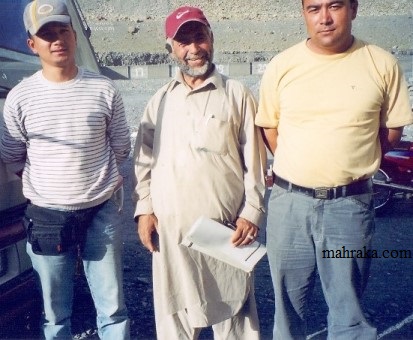
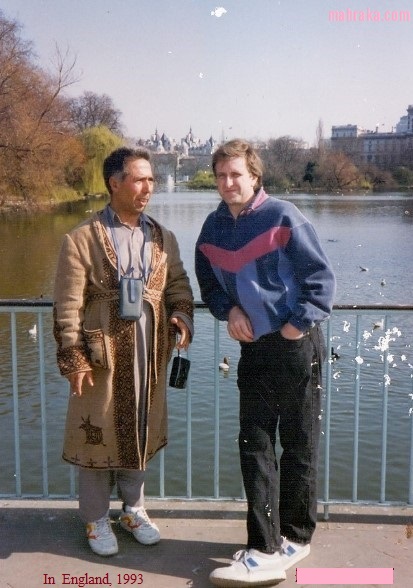
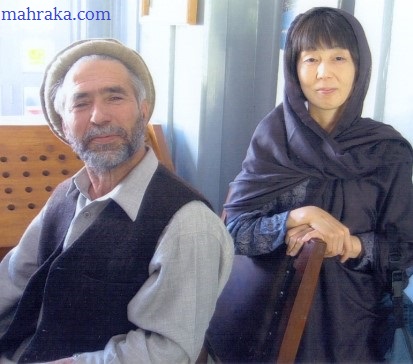
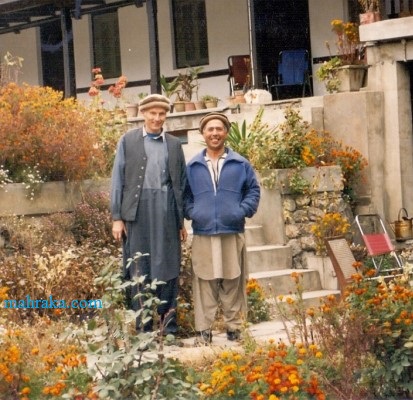
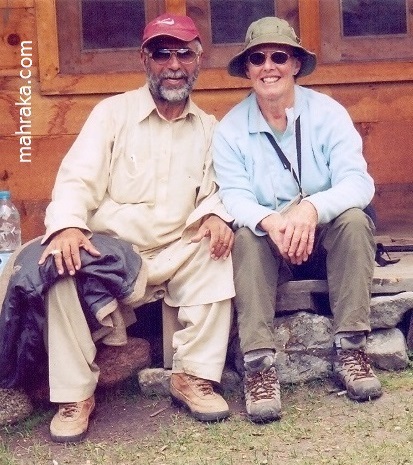
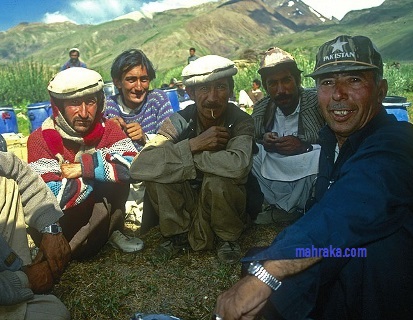
 Back to Main Page
Back to Main Page